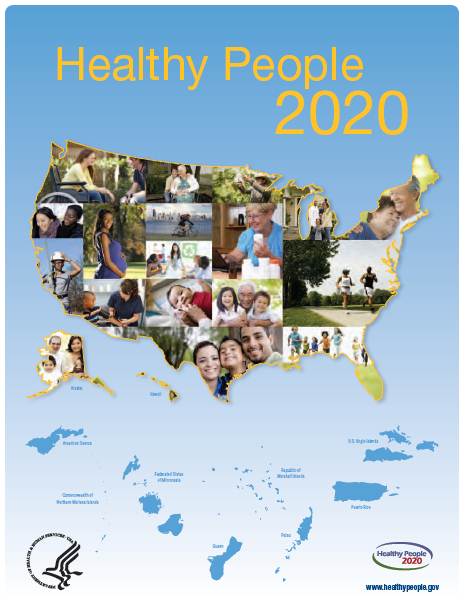

Healthy People 2020 has been released, and there is good news for GeriPals. (See Ken’s post soliciting suggestions from GeriPal readers for Healthy People 2020 back in November 2009.)
New topics for 2020 include: “Older Adults” and “Health-Related Quality of Life.” The objectives for care of older adults have been finalized and are searchable. Objectives for quality of life are still under development. This means they might still include the suggestion I submitted on behalf of GeriPal, suggesting greater training and access to palliative care services.
Take a look at the new guidelines. Some of my favorites from the Older Adults section
- Increase the proportion of the health care workforce with geriatric certification by 10%
- Reduce the proportion of noninstitutionalized older adults with disabilities who have an unmet need for long-term services and supports
- Reduce the proportion of unpaid caregivers of older adults who report an unmet need for caregiver support services
- Reduce the rate of emergency department visits due to falls among older adults
- Increase the number of States, the District of Columbia, and Tribes that collect and make publicly available information on the characteristics of victims, perpetrators, and cases of elder abuse, neglect, and exploitation
There are important targets outside of the Older Adults section, for example in Hearing Loss (increase the proportion of adults >70 who have ever used a hearing aid or assist device). I was sad to find that a search of the complete PDF for the word “palliative” came up empty.
I do appreciate that the quality of life section, although under development, will incorporate the concept of Participation Measures:
- Participation Measures – reflect individuals’ assessments of the impact of their health on their social participation within their current environment. Participation includes education, employment, civic, social and leisure activities. The principle behind participation measures is that a person with a functional limitation – for example, vision loss, mobility difficulty, or intellectual disability – can live a long and productive life and enjoy a good quality of life.
The extent to which participation itself becomes the measure of quality of life is somewhat concerning to me. On the other hand, recognition of the “disability paradox” – that many patients may rate their quality of life highly despite disability – is an important foundation for developing quality of life metrics.
by: Alex Smith



